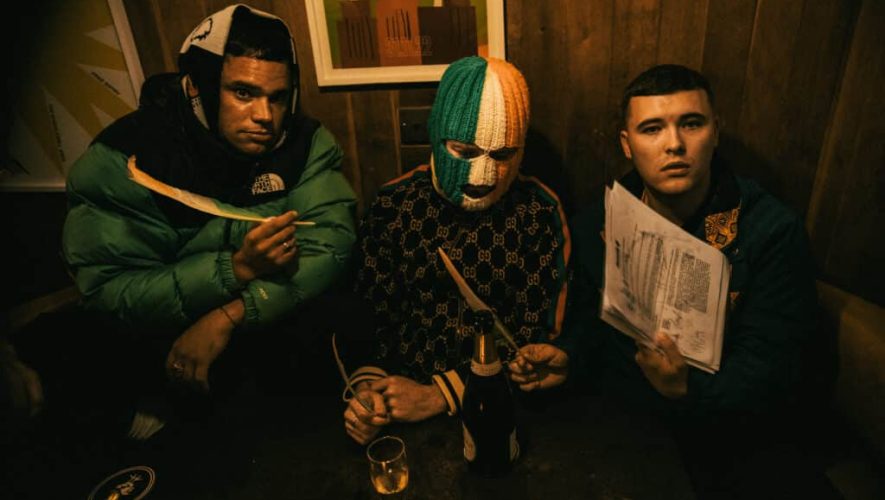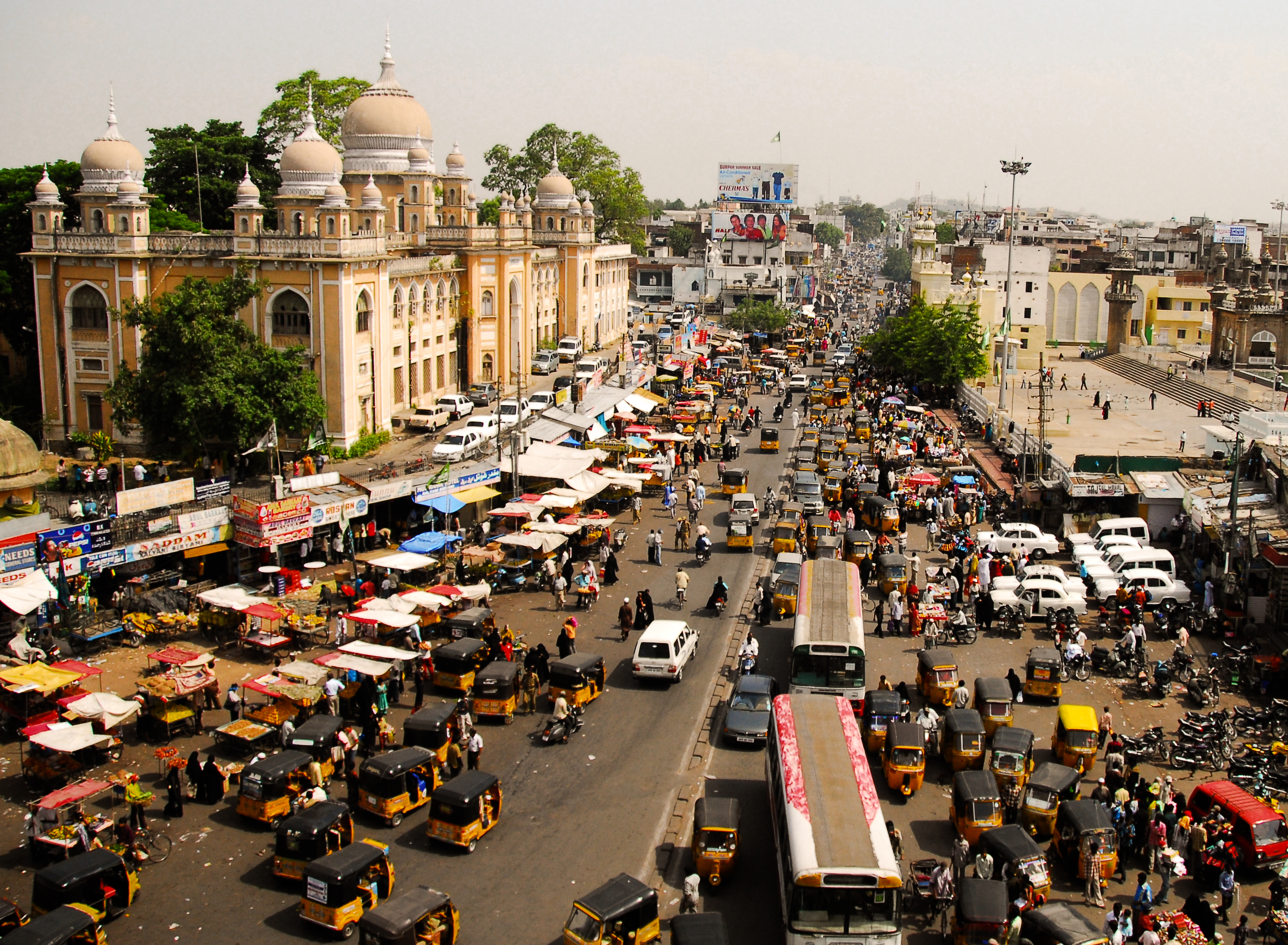Kneecap has emerged as a pioneer in Irish-language rap, producing caustic political satire with playful, punchy bilingual lyricism. Their tracks inject new life into Gaelige, one of Europe’s oldest languages, challenging sanitized depictions of Irish culture with gritty lived realities of post-Troubles youth. Once marginalized through centuries of colonial suppression, the Irish language is often confined to classrooms, folklore, or the conservative countryside. Kneecap reclaims it for urban, working-class modern life through innovative slang and curses.
The bilingual rap group was recently exonerated from terrorism charges, courting continuous controversy. The Band was barred from performing their Canadian tour leg following allegations that the group supported Hezbollah at a festival last November. Previously, the group was forced to cancel their US tour after their visas were revoked on the grounds of antisemitism following outspoken criticism of Israel’s bombardment of Gaza.
Their performances — both a cultural statement and political provocation— were censored in their April Coachella livestream and swiftly condemned, garnering especially pointed critiques from American pro-Israel activists and the British media. Kneecap denies allegations, framing the backlash as a broader effort to silence dissent against imperialism and state violence. But despite criticism, their growing popularity embodies a movement to resist colonialism through the Irish youth’s embrace of the indigenous language.
Formed in Belfast, Kneecap draws on their Catholic Northern Irish backgrounds and a unique cultural tradition of politicized song and language. Dating back to 12th-century Anglo-Norman invasions, Irish political chant and rebel songs evolved over centuries into a dynamic, participatory form of defiance. Irish rebel songs like “Óró Sé do Bheatha ‘Bhaile” or even punk band U2’s “Sunday Bloody Sunday” function as oral archives of struggle. They activate collective memories and stories, and provide an artistic outlet to process trauma and political persecution.
Historical English imperialism in the region imposed a hegemony over Irish speakers and the Catholic, working-class majority. It repressed political art and media — as well as access to the Irish language — to homogenize culture under English control and silence mechanisms for criticism. For years, linguistic extinction became a crucial political means to subjugate Ireland.
Hundreds of years of religious and geopolitical struggle culminated in Northern Ireland in the 1960s, when antipathies sharpened into violence. The Irish language is politically linked with Republicanism and Irish Catholics, especially during the period of the Troubles, which spanned two tumultuous periods in Irish history and ended in a controversial partitioning with the 1998 Good Friday Agreement.
During the Troubles, music became a key tool for solidarity, turning pubs and protests into participatory spaces of remembrance and community. British and Unionist counter-insurgency efforts deliberately targeted collective coordination through culture, from burning rebel pubs to weaponizing sound in prisons against political dissidents. In 1971, a bar bombing was spun by the pro-British media to implicate the Irish Republican Army (IRA) and Republican paramilitaries instead of the loyalists responsible for the crime.
After the 1970s, the IRA became known for its paramilitary tactics, including arson, bombings, and murders. Although the end of the Troubles formally concluded the IRA’s militarism, this history of violence persists within the island’s culture and present-day reality. Despite their repression, the Irish language and Irish music endured, evolving to meet the needs of their communities despite marginalization.
Kneecap both acknowledges and subverts these legacies. Their lyrics simultaneously reference the Provisional IRA and recreational drug use, layering these themes into semi-satirical critiques of post-Good Friday Agreement politics.
While Irish Republican groups like the IRA commonly maintain a staunch anti-drug stance to assert social control — even threatening or committing violence against alleged dealers — Kneecap embraces drug-related imagery and lyricism informed by experiences as Belfast youths. Kneecap’s name itself derives from a brutal punishment dealt by the IRA against dealers. By doing so, they navigate a careful irony that challenges rigid political identities.
Their debut single “C.E.A.R.T.A” — Irish for “rights” — was inspired by rapper Móglaí Bap’s near arrest for spray-painting the word on a Belfast city wall. While Bap fled police custody, his friend was apprehended and refused to speak English, resulting in his detention. Street art and murals across Belfast have been a medium for political expression in the city since the early 20th century. Kneecap uses graffiti to express messages through careful, disruptive material aestheticism, such as their 2022 mural of a burning police car.
Drawing sharp criticism across political and religious lines, the group narrowly uses humor to confront intergenerational trauma and urban alienation in a region still heavily polarized and politically volatile. Their work merges personal experience with historical memory, using the setting — Belfast’s Gaeltacht Quarter— to ground their identity navigation in the deeper context of their lived experiences and positionality as Irish-speakers and “ceasefire babies,” the generation born after the 1998 Good Friday Agreement.
Despite ongoing controversy, Kneecap has become popular with a youth audience by using Irish in a way that reflects contemporary life — bilingual and complicated. Their appeal extends beyond Belfast and Ireland, resonating with youth and postcolonial listeners worldwide who seek to reclaim Indigenous languages and access cultural pride. From Maori listeners in Aotearoa to the Irish diaspora across the Atlantic in North America, Kneecap’s linguistic embrace reflects wider sentiments to use language as resistance against imperial hegemony.
Kneecap’s public advocacy reveals the dual struggle to reclaim Irish identity while challenging global systems of oppression. Their censorship, especially by the British and American governments — whether through funding cuts, performance restrictions, or media blackouts — fits a broader pattern of repression targeting political artists who critique imperialism and state violence.
In postcolonial contexts like Ireland, artistic suppression often operates through both linguistic erasure and ideological narrative control. By rejecting depoliticized narratives and actively reclaiming the Irish language, Kneecap’s art and political candor continue a legacy of cultural resistance. Rapping in the Ulster dialect of Belfast, their music functions as a contemporary archive of survival — a bridge between listeners through shared experiences of dispossession.
Every 40 days, a language dies. As vessels of culture and heritage, linguistic preservation is a deep form of existential perseverance. Kneecap’s Irish-language innovation is more than revitalization; it is a modern integration of tradition and experiential preservation, which invites younger listeners to embrace culture — not as a static or reliquary commodity, but a way towards transformative self-discovery.
Through language, their art fosters connection and living ties to endangered sources of knowledge and shared histories. Like other Indigenous music movements globally, Kneecap situates language at the heart of a struggle for autonomous belonging. Beyond the Irish isle, global linguistic preservation is a way for marginalized youths to preserve and proudly embrace their heritage.



